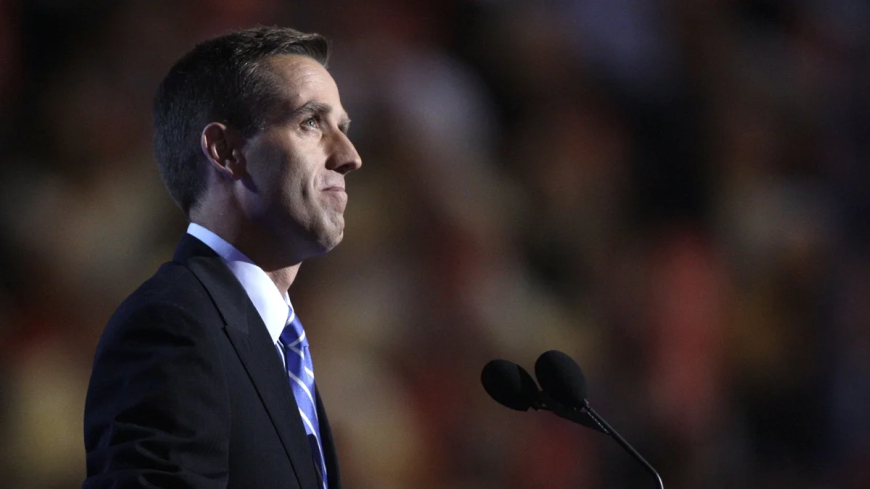Beau Biden: A Life of Service, Sacrifice, and Legacy

Introduction
Beau Biden, the eldest son of U.S. President Joe Biden, was more than a prominent political figure—he was a model of integrity, public service, and perseverance. From his military service to his role as Delaware’s Attorney General, Beau Biden's life was marked by a steadfast commitment to justice, family, and country. Though his life was tragically cut short by cancer in 2015, Beau left behind a legacy that continues to influence American politics, civic leadership, and advocacy for children's safety and veterans’ rights.
This article explores Beau Biden's early life, career, personal values, and the legacy he left behind. It also examines his impact through a timeline, a comparative table, and a summary list of his key contributions.
Early Life and Education
Family Background
Born Joseph Robinette “Beau” Biden III on February 3, 1969, in Wilmington, Delaware, he was the firstborn son of then-Senator Joe Biden and his first wife, Neilia Biden. In December 1972, tragedy struck when a car accident killed Beau’s mother and younger sister. Beau and his brother Hunter were injured but survived. This life-altering event forged a tight bond between the Biden family and shaped Beau’s lifelong resilience.
Academic and Legal Path
Beau Biden graduated from Archmere Academy, followed by the University of Pennsylvania, and later earned his Juris Doctor from Syracuse University College of Law, following in his father's legal footsteps.
Professional Career and Military Service
Attorney General of Delaware
Beau Biden served as Attorney General of Delaware from 2007 to 2015, gaining national attention for his commitment to justice and child protection. His work included prosecuting sex offenders, strengthening laws against domestic abuse, and holding mortgage companies accountable during the foreclosure crisis.
Military Service in Iraq
In 2003, Beau joined the Delaware Army National Guard and rose to the rank of Major in the Judge Advocate General’s (JAG) Corps. In 2008, he was deployed to Iraq, serving for one year while still holding office as Attorney General. His commitment to public duty, even while deployed in a war zone, was widely praised.
Timeline of Beau Biden's Life (Table)
| Year | Event |
|---|---|
| 1969 | Born in Wilmington, Delaware |
| 1972 | Survived a car accident that killed his mother and sister |
| 1991 | Graduated from Syracuse University College of Law |
| 2001 | Married Hallie Olivere |
| 2003 | Joined Delaware Army National Guard |
| 2006 | Elected as Delaware Attorney General |
| 2008 | Deployed to Iraq for one year |
| 2013 | Diagnosed with brain cancer |
| 2015 | Passed away at age 46 |
Contributions and Achievements
Beau Biden’s leadership was grounded in moral clarity and an unshakable belief in doing the right thing, even when it was politically inconvenient. During his time as Attorney General, he made meaningful contributions to Delaware’s justice system and influenced national conversations about law enforcement reform.
Major Accomplishments (List Format)
-
Child Predator Task Force – Launched to identify and prosecute internet predators.
-
Mortgage Crisis Legal Action – Took action against fraudulent lenders during the 2008 financial crash.
-
Veterans Advocacy – Advocated for returning service members and military families.
-
Domestic Violence Prevention – Strengthened protections for victims of domestic abuse.
-
Refusal to Chase Political Power – Declined to run for U.S. Senate in 2010, citing unfinished work in Delaware.
Personal Life and Values
Beau married Hallie Olivere in 2002, and together they had two children: Natalie and Robert Hunter Biden II. Colleagues described him as compassionate, diligent, and committed to both his family and his country.
He valued humility over ambition, often prioritizing ethical decisions over political gain. Beau Biden was known for his empathy, grounded nature, and strong moral compass—qualities that earned him bipartisan respect.
Legacy and National Impact
Though Beau Biden never sought the national spotlight, his legacy has resonated on a national level. Following his death from glioblastoma, a rare and aggressive form of brain cancer, the Biden family helped launch initiatives in his honor.
Honoring Beau’s Memory
| Organization/Program | Purpose |
|---|---|
| Beau Biden Foundation | Advocates for the protection of children from abuse |
| President’s Cancer Moonshot | Initiative inspired by Beau to fund cancer research |
| National Guard Memorials | Recognized for service with a building named in his honor |
President Joe Biden has often spoken about how Beau influences his decisions, particularly in areas of justice, military policy, and healthcare. In several addresses, President Biden has referred to Beau as the “soul” of the Biden family.
Comparison: Beau Biden vs. Political Peers (Table)
| Name | Office Held | Military Service | Legal Career | Notable For |
|---|---|---|---|---|
| Beau Biden | Attorney General (DE) | Yes (Iraq) | Yes | Child protection, justice reform |
| Kamala Harris | Attorney General (CA) | No | Yes | Civil rights, criminal justice reform |
| Pete Buttigieg | Mayor of South Bend | Yes (Afghanistan) | No | Transportation reform, infrastructure |
| Tammy Duckworth | U.S. Senator (IL) | Yes (Iraq) | No | Veterans’ rights, disability advocacy |
Final Reflections: A Life of Meaning
Beau Biden was more than a public servant—he was a man of conviction who inspired trust through action, not just words. Despite the political family he came from, he carved his own path, grounded in his desire to protect the vulnerable, serve with honor, and uphold justice at every level.
His untimely death was a loss not just to his family, but to the nation. Yet, his legacy continues to live on through legislation, memorials, foundations, and the very values he championed. Beau’s story is a reminder that true leadership lies not in titles or ambitions, but in how one serves others with integrity and love.
Conclusion
Beau Biden's journey—marked by tragedy, triumph, service, and sacrifice—is a powerful testament to the potential of principled leadership. In an era where political ambition often overshadows public good, Beau stands out as a beacon of hope and decency.
His story inspires future generations to pursue careers in public service, not for power, but to make a difference. And perhaps most importantly, it reinforces the notion that the greatest legacies are those built not in the spotlight, but in the quiet, consistent service of others.






























